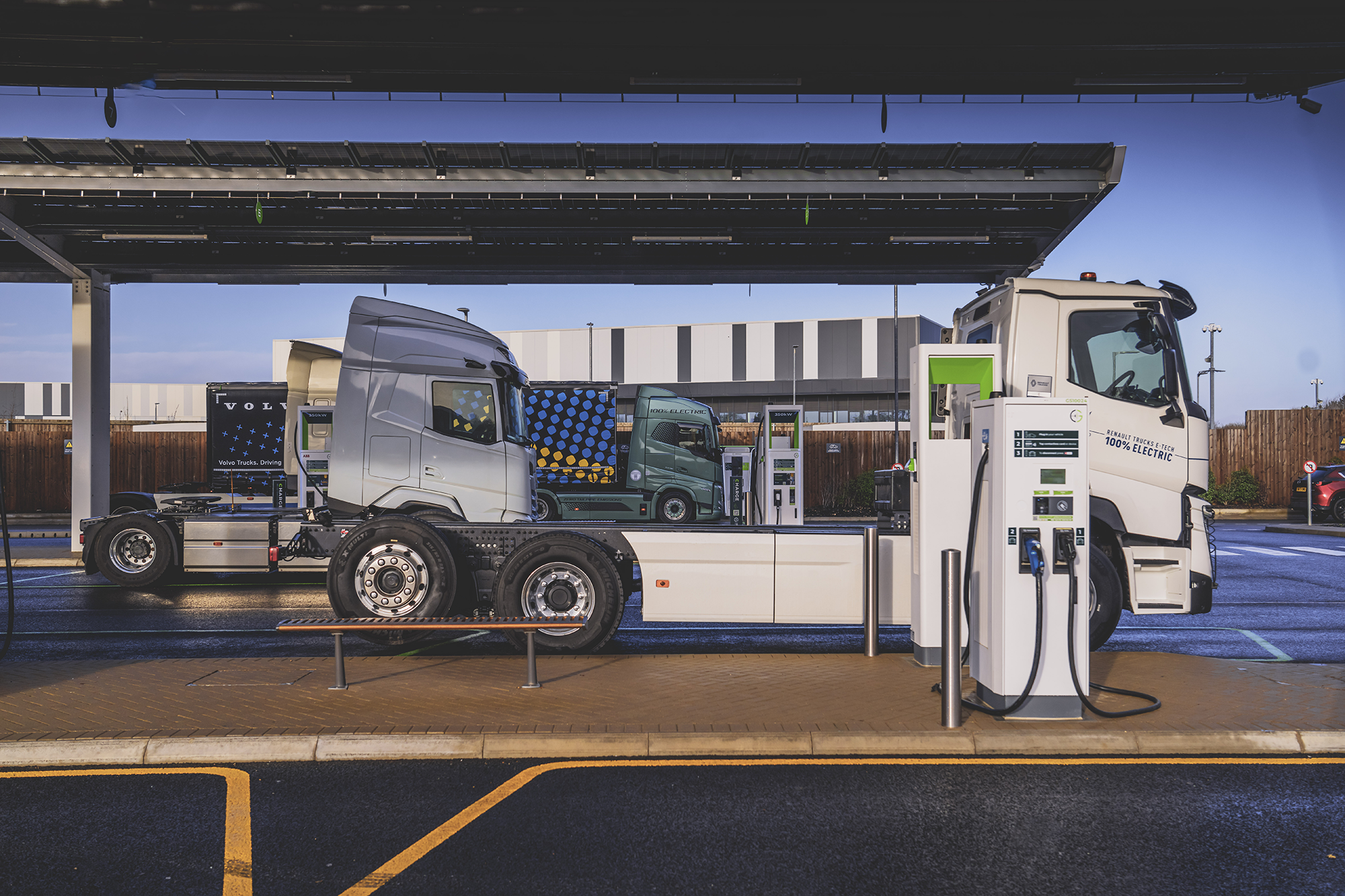- Electric Freightway initial report outlines project commitments and delivery timeline
- First eHGVs expected to be delivered and enter service in March
- First depot charging hub targeted for completion in May
The first report for GRIDSERVE’S Electric Freightway programme has been published by principal partner Hitachi ZeroCarbon, which sits at the epicentre of an energy, transport and logistics sector revolution.
Electric Freightway is part of the Zero Emission HGV and Infrastructure Demonstrator programme. Lead by GRIDSERVE, funded by the Department for Transport and delivered in partnership with Innovate UK, it aims to lay the foundations for the biggest and most advanced electric Heavy Goods Vehicle (eHGV) charging network in the world.
Report one is a more detailed refinement of the objectives announced in October 2023, which aims to support and monitor a fleet of up to 140 eHGVs as well as install up to 200 eHGV chargers across motorway service areas, truck stops and commercial depots. The programme currently comprises 33 consortium partner and member companies and works closely with all stakeholders along the value chain to support and promote the decarbonisation of HGVs.
This first report provides an updated development roadmap and details how Electric Freightway will keep the haulage industry informed of any key insights. This month, some of the consortium members will be receiving their first eHGV orders to put straight into service, while GRIDSERVE is expecting sign-off from a combination of landowners, adjacent business owners, local government and Distribution Network Operators (DNOs) to begin the installation of its first eHGV charging depot. Additionally, Hitachi ZeroCarbon will begin conducting a survey of drivers and fleet managers to compare their perceptions of eHGVs over time, while gathering useful data from their initial operational experience.
James Comer, Programme Director, Hitachi ZeroCarbon, said: “With the UK Government’s ambitious targets of ending combustion-powered heavy goods vehicles by 2035, and 2040 for heavier vehicles, now is the time to enact meaningful change and deploy the insights that data can provide. This project is the pioneer demonstration for the decarbonisation of the UK’s logistics industry and will tangibly test what a zero carbon future could look like. We’re proud to provide the unique insight that will stimulate the market to make the move to battery electric trucks and a net zero society.”
Sam Clarke, Chief Vehicle Officer, GRIDSERVE added: “The decarbonisation of the UK truck fleet is one of the greatest disruptors haulage and logistics have ever seen and we are now well under way through this project to catalyse material change. In Electric Freightway, we’ll push electric HGVs to their limits to establish just what is possible, while highlighting where there is the need for process, technological or policy innovation to enable the transition to electric. This first report enables us to set out all our ambitions, achievements and challenges to date and set the standard for all to follow,”
“This project is also about building a charging network that benefits the whole industry and we’re keen to hear from those in haulage and logistics outside of the Electric Freightway consortium and encourage any feedback on the topic through our feedback@gridserve.com email.”
Report two will be published this summer by Hitachi ZeroCarbon. The next report will provide insight into the driving cycle efficiency of some of the programme’s eHGVs, as well as share lessons learnt from the first eHGV infrastructure installation and the obstacles organisations are facing when implementing eHGV infrastructure.

